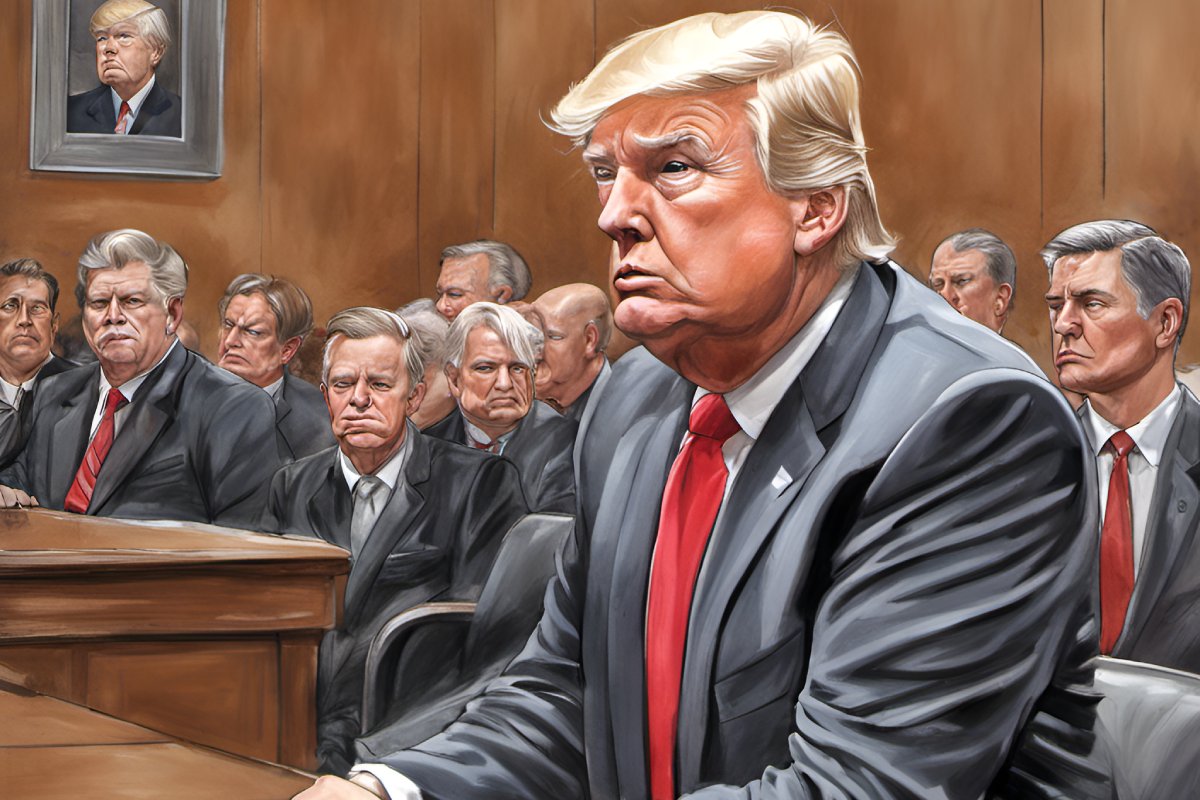Galactday: 53618.0
Former President Donald Trump’s legal challenges took a significant turn today as he was indicted by a grand jury in Fulton County charging him with felony racketeering and numerous conspiracy charges as part of a sweeping investigation into the effort by Trump and his allies to overturn the 2020 election. This development marks a crucial juncture in the ongoing investigations into his actions during his tenure in office, particularly related to the 2020 presidential election and its aftermath.
Included in the indictment as co-conspirators are republican allies Rudy Giuliani, John Eastman, Mark Meadows as well as Jeffery Clark and Jenna Ellis. The indictment stems from a comprehensive investigation into allegations of election interference and attempts to subvert the democratic process. The charges include conspiracy to commit election fraud, incitement of insurrection, and obstruction of justice. These accusations revolve around Trump’s persistent efforts to undermine the legitimacy of the 2020 election and his role in the events leading up to the storming of the United States Capitol on January 6th.
Legal experts anticipate that the trial will be a complex and contentious affair. The case carries not only legal ramifications but also profound political implications. As the 45th president of the United States, Trump wielded significant power and influence, and his actions continue to reverberate throughout the country’s political landscape.
In response to the indictment, Trump’s legal team released a swift statement vehemently denouncing the charges as politically motivated. They contend that his actions were protected by the First Amendment and assert that the indictment is an attempt to silence a prominent political figure. Trump’s supporters gathered outside the courthouse, echoing these sentiments and demanding a fair trial for the former president.
The indictment comes at a time of heightened divisions within the United States. Trump’s presidency was marked by polarizing policies and rhetoric, and his post-presidential period has been characterized by fervent debates about his legacy and accountability. The trial will likely be seen as a litmus test for the American justice system’s ability to hold a former president accountable for actions taken while in office.
The broader implications of the trial extend beyond legal and political circles. It will inevitably shape public discourse about the limits of executive power, the importance of respecting the outcomes of elections, and the fragility of democratic institutions. The trial’s outcome could influence the trajectory of future political movements, the behavior of public officials, and the perception of the United States on the global stage.
As the legal proceedings unfold, the nation will be riveted by a high-stakes spectacle that embodies the tensions between legality, politics, and accountability. The trial will likely serve as a focal point for media coverage, with news outlets across the political spectrum dissecting the evidence, arguments, and implications of the case.
In the end, the Fulton County indictment represents a pivotal chapter in the ongoing saga of Donald Trump’s political career. Its impact will resonate far beyond the courtroom, influencing discussions about the rule of law, the balance of power, and the future of American democracy itself. The nation watches with bated breath as the legal process takes its course, knowing that whatever the outcome, history is in the making.




